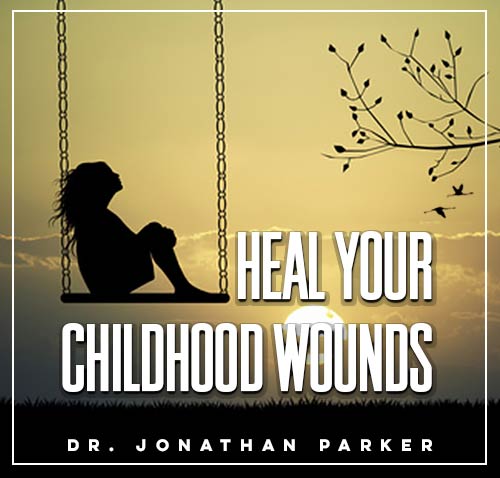Anxiety Recovery: Heal Childhood Traumas

Before diving in, please note: This post is for informational purposes only. If you’d like to know more about how we approach topics, feel free to check out our friendly Disclaimer Page.
Hey there, amazing readers! 🖐️ Just a quick note: yes, we know there are a lot of ads here. Trust us, we get it—it’s not the prettiest look, but they help us keep this blog alive and kicking. Those pesky little ads cover the costs of all the behind-the-scenes magic, from hosting and tech stuff to creating content we hope you’ll love.
We’re committed to delivering quality posts, and your support (even just sticking around despite the ads) means everything to us. So, bear with us, and thanks for helping us keep the good vibes rolling. Now, on to the fun stuff! 😉
TRANSLATE BUTTON AT THE END OF THE ARTICLE
A Quick Overview
Healing childhood traumas is an essential aspect of recovering from anxiety.
Our early experiences can have a profound impact on our mental health, shaping how we perceive the world and interact with others.
Childhood traumas, such as abuse, neglect, or family dysfunction, can leave lasting scars that manifest in anxiety disorders later in life.
Recognizing the link between childhood traumas and anxiety is the first step towards healing and recovery.
By addressing the root causes of anxiety through trauma healing, individuals can break free from patterns of fear and worry, and embrace a renewed sense of self.
Understanding Childhood Traumas and Anxiety Recovery
Childhood traumas are adverse experiences that occur during a person’s formative years, often leaving deep emotional wounds.
These traumas can range from physical, emotional, or sexual abuse to neglect, loss of a loved one, or witnessing violence.
When these traumatic events are not properly processed or addressed, they can contribute to the development of anxiety disorders in adulthood.
Anxiety recovery involves understanding the impact that childhood traumas have had on one’s mental and emotional well-being, and actively working towards healing these wounds.
Recognizing the Impact of Childhood Traumas on Anxiety
The impact of childhood traumas on anxiety can be profound and complex.
Traumatic experiences can shape our beliefs about ourselves, others, and the world around us, leading to feelings of fear, mistrust, and insecurity.
These negative beliefs and emotions can contribute to the development of anxiety disorders, such as generalized anxiety disorder, post-traumatic stress disorder, or panic disorder.
Recognizing the connection between childhood traumas and anxiety is crucial for effectively addressing and overcoming these mental health challenges.
Importance of Healing Childhood Traumas for Anxiety Recovery
Healing childhood traumas is essential for anxiety recovery because it allows individuals to address the root causes of their anxiety and work towards resolving unresolved emotional issues.
By confronting and processing past traumas, individuals can begin to heal old wounds, challenge negative beliefs, and develop healthier coping mechanisms.
This process of healing not only promotes emotional healing but also helps individuals build resilience and self-awareness, leading to greater overall well-being and mental health.
Addressing Root Causes of Anxiety through Trauma Healing
To effectively address anxiety disorders, individuals must delve into the root causes of their anxiety through trauma healing.
This involves exploring past traumas, acknowledging painful memories, and working through unresolved emotions in a safe and supportive environment.
Therapy, such as cognitive-behavioral therapy (CBT), eye movement desensitization and reprocessing (EMDR), or somatic experiencing, can be instrumental in helping individuals process and release traumatic experiences, leading to reduced anxiety symptoms and improved mental health.
Techniques for Healing Childhood Traumas to Manage Anxiety
There are various techniques and approaches that individuals can use to heal childhood traumas and manage anxiety effectively.
Some of these techniques include:
Mindfulness meditation: Practicing mindfulness can help individuals become more aware of their thoughts and emotions, allowing them to process and release past traumas.
Journaling: Writing about past traumas can be a therapeutic way to express emotions, gain insights, and track progress in healing.
Art therapy: Engaging in creative activities, such as painting or drawing, can help individuals express emotions that are difficult to articulate verbally.
Yoga and exercise: Physical activities can release tension and promote relaxation, reducing anxiety and promoting overall well-being.
Seeking Professional Help for Childhood Trauma Recovery
Seeking professional help is crucial for healing childhood traumas and managing anxiety effectively.
Mental health professionals, such as therapists, counselors, or psychologists, are trained to help individuals process traumatic experiences, develop coping strategies, and work towards healing.
Therapy can provide a safe space for individuals to explore their past traumas, gain insights into their behaviors and beliefs, and learn new ways of managing anxiety.
Additionally, support groups and peer counseling can offer valuable support and validation for individuals on their healing journey.
Building Resilience and Coping Mechanisms for Anxiety
Building resilience and developing healthy coping mechanisms are essential aspects of anxiety recovery from childhood traumas.
Resilience involves the ability to bounce back from adversity, setbacks, and challenges, while coping mechanisms are strategies that individuals use to manage stress and anxiety effectively.
Discover "SUPERFOODS: The Key to Health and Balance🥗" 🌿🌺
Some ways to build resilience and develop coping mechanisms include:
Practicing self-care and setting boundaries
Engaging in healthy relationships and social support
Learning stress management techniques, such as deep breathing or progressive muscle relaxation
Cultivating a positive mindset and practicing gratitude
Creating a Support System for Healing Childhood Traumas
Creating a support system is vital for healing childhood traumas and managing anxiety effectively.
A support system can consist of friends, family members, therapists, support groups, or online communities that provide emotional support, validation, and encouragement.
Having a strong support system can help individuals feel less isolated, more understood, and better equipped to navigate the challenges of healing from past traumas.
By surrounding themselves with caring and empathetic individuals, individuals can feel more supported and motivated to continue their healing journey.
Practicing Self-Care in Anxiety Recovery from Childhood Traumas
Practicing self-care is essential for anxiety recovery from childhood traumas, as it helps individuals nurture their physical, emotional, and mental well-being.
Self-care activities can include:
Getting enough sleep and rest
Eating a balanced diet and staying hydrated
Exercising regularly and engaging in activities that bring joy and relaxation
Setting boundaries and saying no to things that drain energy
By prioritizing self-care, individuals can replenish their energy, reduce stress, and promote overall well-being, making it easier to cope with anxiety symptoms and work towards healing from childhood traumas.
Breaking Free from Patterns of Anxiety through Healing
Breaking free from patterns of anxiety involves challenging negative beliefs, exploring past traumas, and developing healthier coping mechanisms.
By actively working on healing childhood traumas, individuals can begin to unravel the roots of their anxiety and cultivate a sense of empowerment and self-awareness.
Breaking free from patterns of anxiety requires courage, persistence, and self-compassion, as individuals confront their fears, process painful emotions, and learn to trust themselves and others again.
Celebrating Progress in Healing Childhood Traumas and Anxiety
Celebrating progress in healing childhood traumas and anxiety is essential for acknowledging the hard work and dedication that individuals put into their recovery journey.
By celebrating even small victories and milestones, individuals can boost their self-esteem, motivation, and resilience, fostering a sense of accomplishment and empowerment.
Whether it’s attending therapy consistently, practicing self-care regularly, or challenging negative beliefs, every step towards healing childhood traumas and managing anxiety is worth celebrating.
Embracing a Renewed Sense of Self after Trauma Recovery
Embracing a renewed sense of self after trauma recovery involves letting go of old narratives, beliefs, and behaviors that no longer serve individuals’ well-being.
By actively working on healing childhood traumas, individuals can cultivate a sense of self-compassion, resilience, and authenticity.
Embracing a renewed sense of self means recognizing one’s strengths, values, and potential, and moving forward with confidence and purpose.
Through trauma recovery and anxiety management, individuals can embark on a journey of self-discovery, growth, and empowerment, creating a brighter and more fulfilling future for themselves.
Conclusion
Healing childhood traumas is a critical aspect of anxiety recovery, as these early experiences can have a profound impact on mental health and well-being.
By recognizing the link between childhood traumas and anxiety, individuals can begin to address the root causes of their anxiety, develop coping mechanisms, and build resilience.
Seeking professional help, practicing self-care, creating a support system, and celebrating progress are essential steps in healing childhood traumas and managing anxiety effectively.
By embracing a renewed sense of self after trauma recovery, individuals can break free from patterns of anxiety, cultivate self-compassion, and embark on a journey of healing and empowerment.

The Enlightenment Journey is a remarkable collection of writings authored by a distinguished group of experts in the fields of spirituality, new age, and esoteric knowledge.
This anthology features a diverse assembly of well-experienced authors who bring their profound insights and credible perspectives to the forefront.
Each contributor possesses a wealth of knowledge and wisdom, making them authorities in their respective domains.
Together, they offer readers a transformative journey into the realms of spiritual growth, self-discovery, and esoteric enlightenment.
The Enlightenment Journey is a testament to the collective expertise of these luminaries, providing readers with a rich tapestry of ideas and information to illuminate their spiritual path.
Our Diverse Expertise 🌟
While our primary focus is on spirituality and esotericism, we are equally passionate about exploring a wide range of other topics and niches 🌍📚. Our experienced team is dedicated to delivering high-quality, informative content across various subjects ✨.
To ensure we provide the most accurate and valuable insights, we collaborate with trusted experts in their respective domains 🧑🏫👩🏫. This allows us to offer well-rounded perspectives and knowledge to our readers.
Our blog originally focused on spirituality and metaphysics, but we’ve since expanded to cover a wide range of niches. Don’t worry—we continue to publish a lot of articles on spirituality! Frequently visit our blog to explore our diverse content and stay tuned for more insightful reads.







